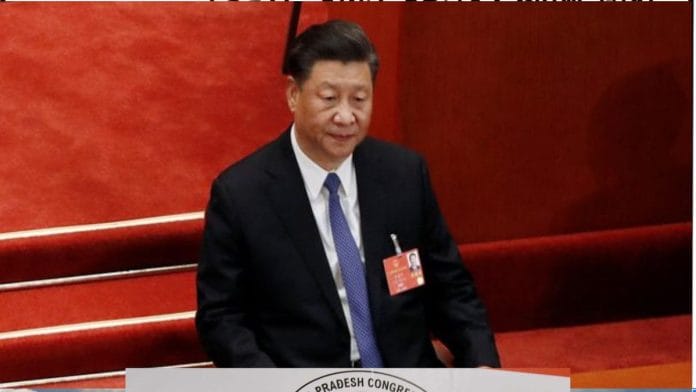China has revised its Law on Guarding State Secrets for the second time, aligning it with the counter-espionage law amended in July last year.
The revisions represent the most substantial changes to the 1988 law since its first amendment in 2010. The modifications enhance surveillance over domestic and foreign entities and foreign nationals residing and working within the country.
With 65 articles, the revisions are exhaustive and cover various areas—from State affairs to foreign and defence matters. However, its definition of State secrets is ambiguous. Vague language allows the Xi Jinping government to act against individuals and entities without clear legal justifications.
Vague language, more control
Article 62 in chapter five of the revisions is particularly noteworthy. It states: “Where violations of the provisions of this law constitute a crime, criminal responsibility is pursued in accordance with law.”
The potential impact of this revised law on foreign residents or visitors in China, who hold dissenting perspectives toward the Chinese Communist Party (CCP), is concerning. They may face detention or arrest under the provisions of this legislation.
A notable amendment focuses on regulating information dissemination on the internet. Article 34 stipulates that network operators monitor user-generated content closely and cooperate with authorities to investigate cases of suspected leaks of State secrets online.
Operators are required to stop the transmission of such information immediately, keep a record of the incident, and comply with requests to remove leaked information and implement necessary technical measures. This strengthens the Chinese government’s grip over information flow and extends control over shaping the domestic narrative. While many Western media outlets and social media platforms are already inaccessible in China, this provision enables authorities to further restrict dissent on local microblogging platforms such as Weibo, search engines like Baidu, and internet companies including ByteDance and Tencent.
Additionally, China is pursuing self-sufficiency through these new provisions amid the US technology transfer controls. Part of the revisions also target enhancing confidentiality technology protection systems and measures. The revised law also raises concerns among foreign businesses in China. The evolving legal landscape introduces heightened ambiguity and volatility, potentially deterring investment opportunities and fostering a perception of instability.
The enactment of these revisions to the State secret law is also seen as a direct threat to over 1,00,000 Taiwanese individuals living and working in China. With stricter laws in place, those who do not conform to the CCP’s stance on Taiwan and advocate for democracy may become primary targets in China. The arrest of Taiwanese pro-democracy and human rights activist Lee Ming-che in 2017 serves as a stark example.
Chiu Tai-san, the head of Taiwan’s Mainland Affairs Council (MAC), has already issued advisories urging caution for citizens traveling to China.
“The law’s vague provisions increase uncertainty, which together with the low transparency of rule of law in China means the risk of Taiwanese travelers violating the law has significantly increased,” the MAC said.
The MAC criticised Beijing for using legislation to monitor visitors to China, adding that cases of “fabricated crimes” against Taiwanese and foreigners are common.
Also read: India-Taiwan relations are making China uneasy. So it’s turning to disinformation
China justifies the revisions
While several international civil society organisations perceive China’s state secret law as a pretext for repression within the country, Chinese officials and state-owned media present a contrasting perspective. China Central Television voiced its approval for the amendments on Weibo, stressing the paramount importance of protecting national security. The news channel likened the obligation of confidentiality to the weighty significance of Mount Tai, the highest peak in Shandong Province, known for its rich cultural and historical heritage.
“As the guarding of state secrets faces new problems and challenges in the new era, the revision of the Law on Guarding State Secrets is a necessary move to improve relevant work,” an official with China’s National Administration of State Secrets Protection said.
The State Secret bureau official said that the revised law is “guided by Xi Jinping Thought on Socialism with Chinese Characteristics for a New Era”, aligns with the Central Committee of the CCP, and also implements Xi’s rule of law. The enacted amendments integrate policies since the 18th National Congress of the CCP into law, enhancing national security with a “more powerful legal guarantee”.
These statements seek to justify the stringent anti-espionage and State secret laws, framing them as necessary measures undertaken to safeguard national security amid evolving domestic and geopolitical dynamics. This also signals a heightened consolidation of governmental authority and a stricter control exerted by the state over both domestic and foreign entities within its jurisdiction. This consolidation mirrors a broader trend of strengthening governmental control, with the legislative changes serving as a tangible manifestation of this overarching objective.
Also read: China-Russia in a win-win relationship. Their partnership should worry the West
Good for Xi, bad for China
While ostensibly framed as measures to safeguard state secrets and national interests, the focus of these revisions in laws seems to have shifted from merely legitimising the party to solidifying Xi’s grip on power and ensuring his legacy.
The amendments to China’s secrecy and counter-espionage legislation paint a portrait of a country moving toward greater seclusion and opacity. Under Xi’s leadership, Beijing appears assertive, fragile, and insecure. There seems to be an urgency to suppress any challenges to his authority.
Sana Hashmi is a fellow at the Taiwan Asia Exchange Foundation and George H W Bush Foundation for US-China Relations. She tweets @sanahashmi. Views are personal.
(Edited by Zoya Bhatti)






